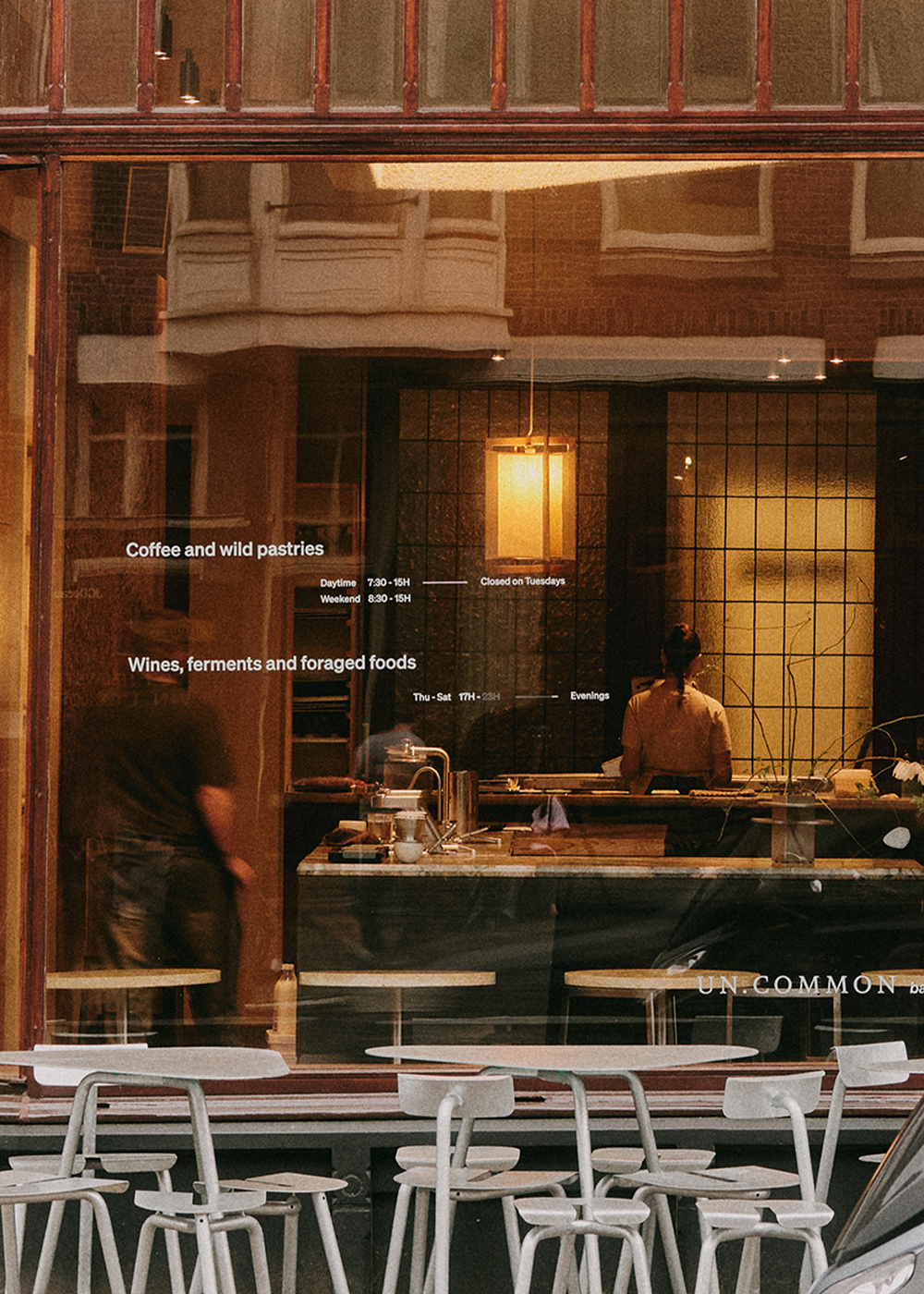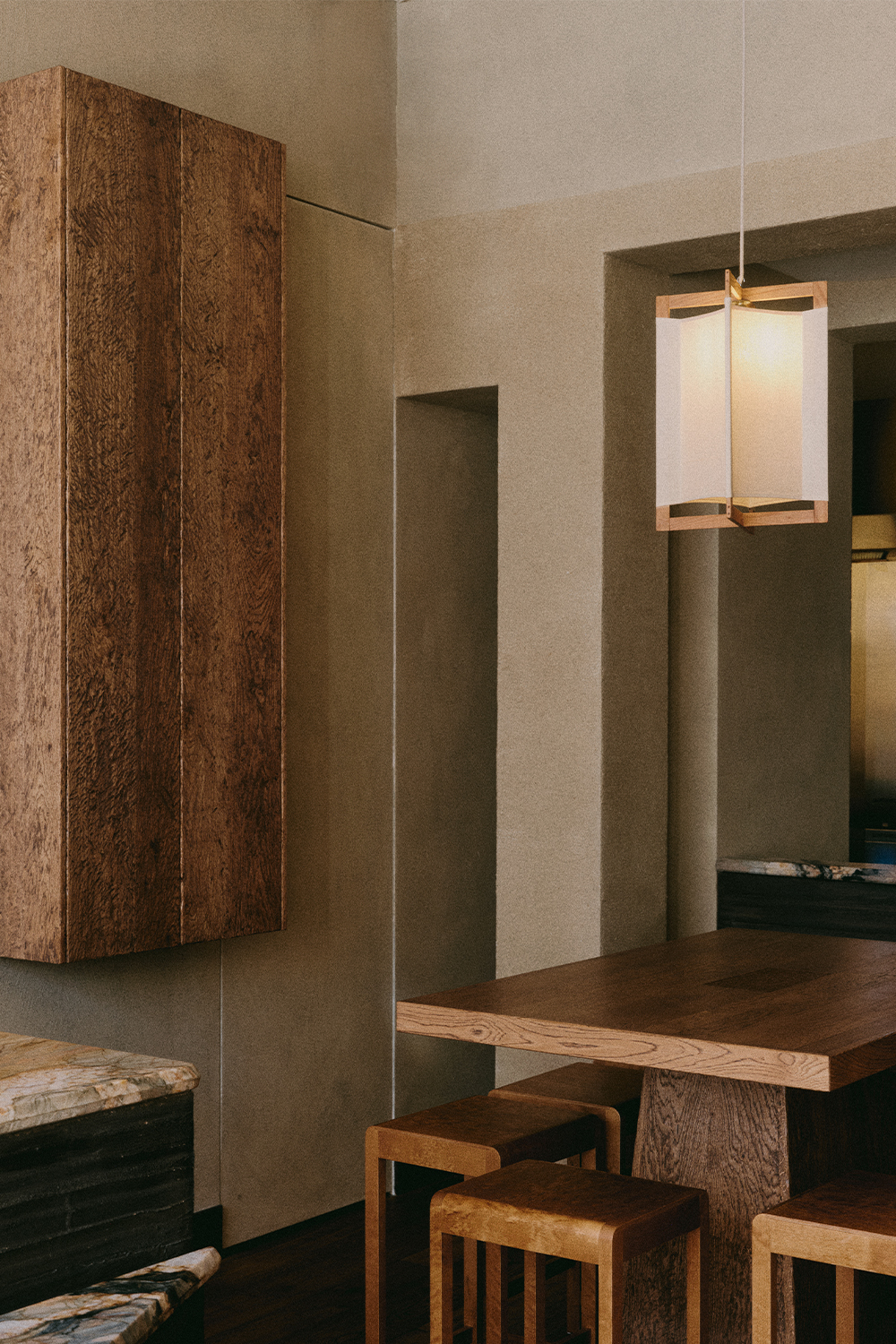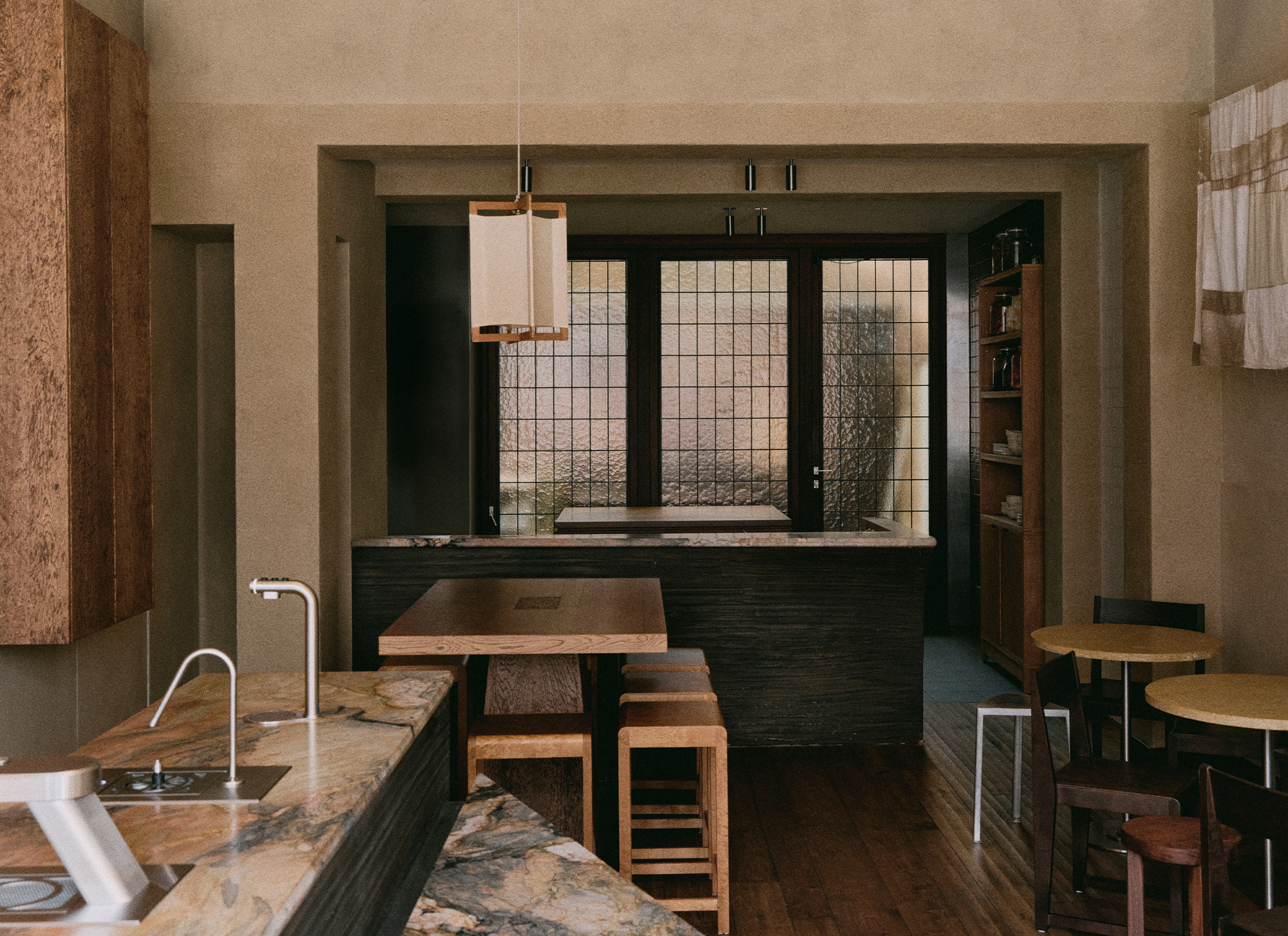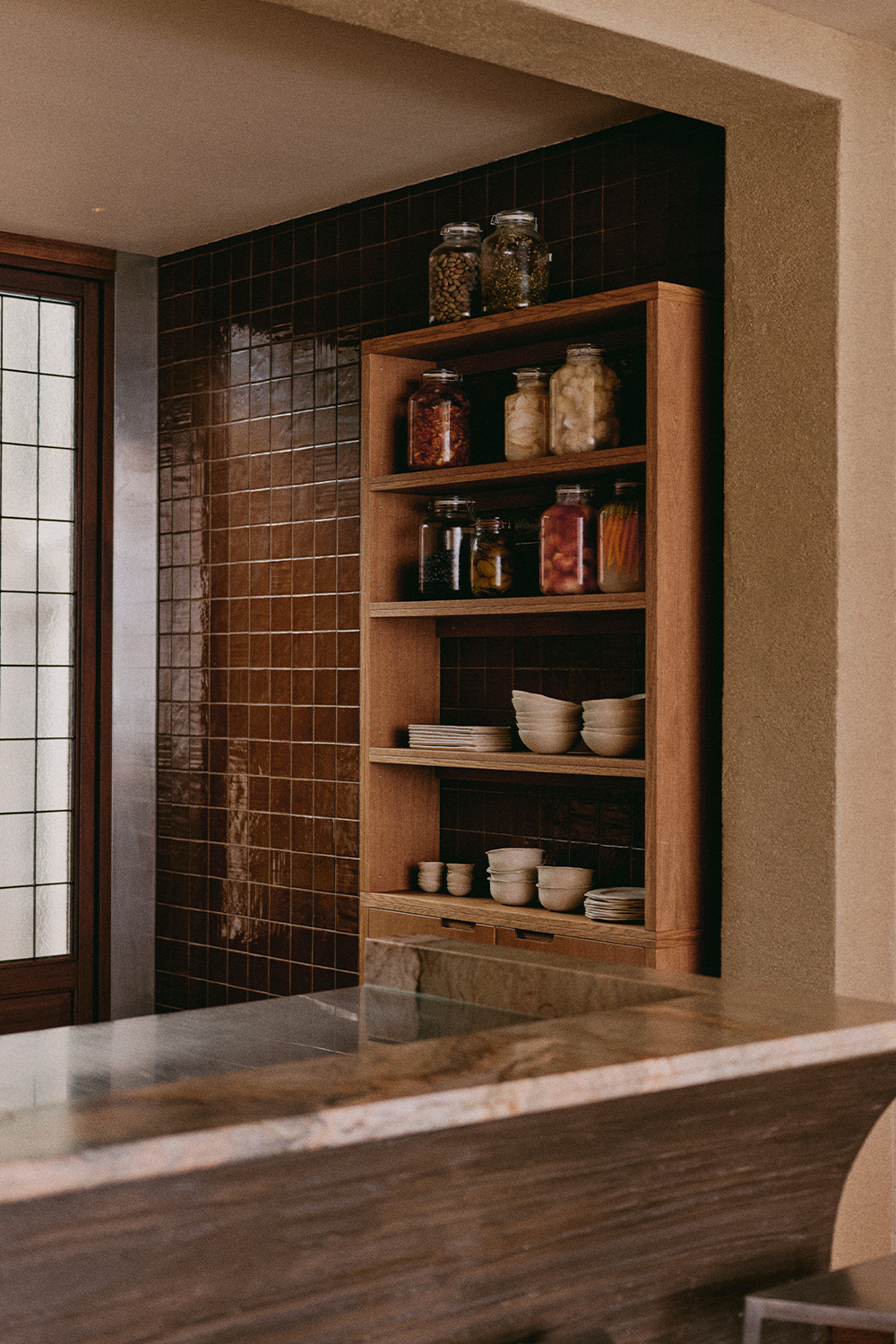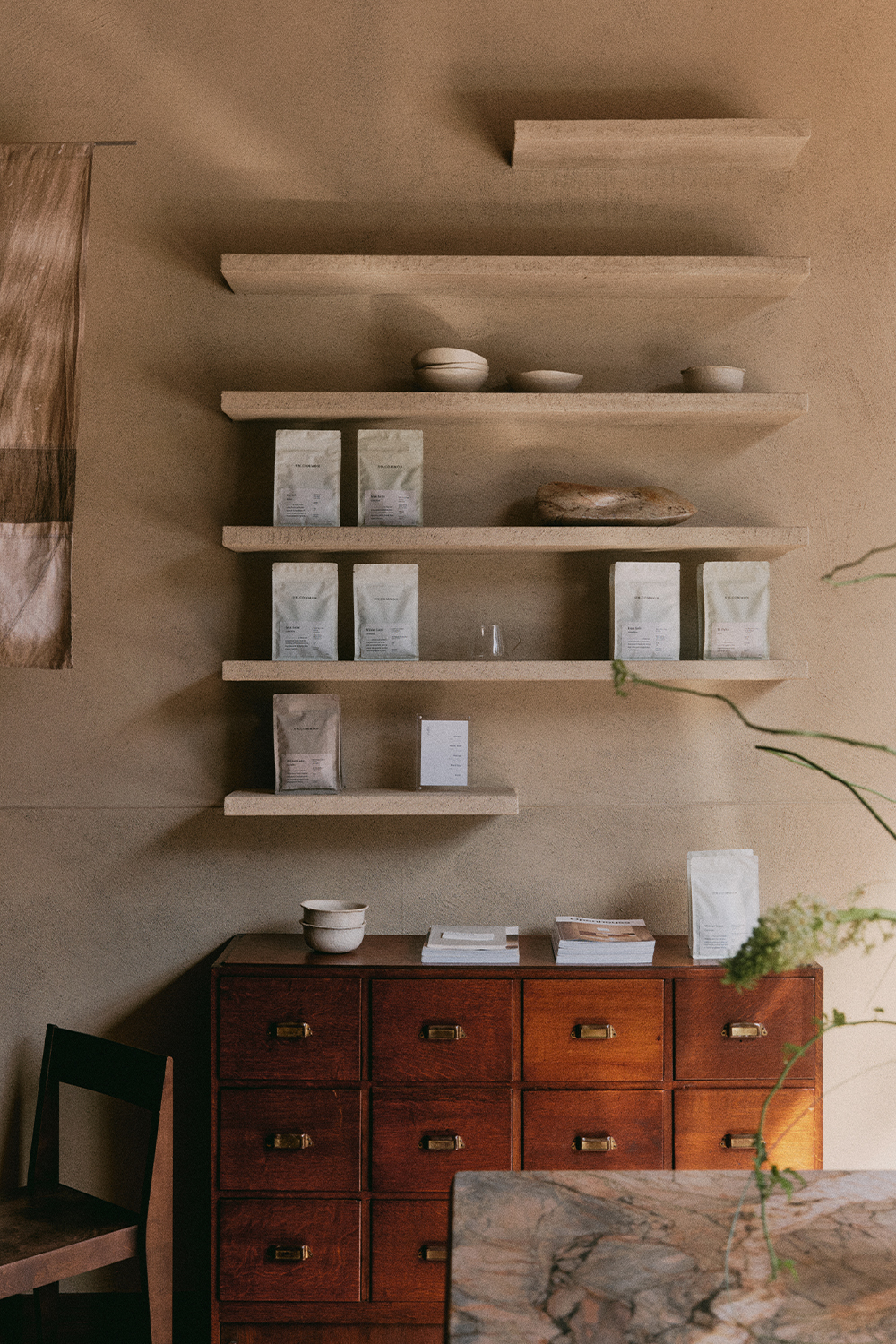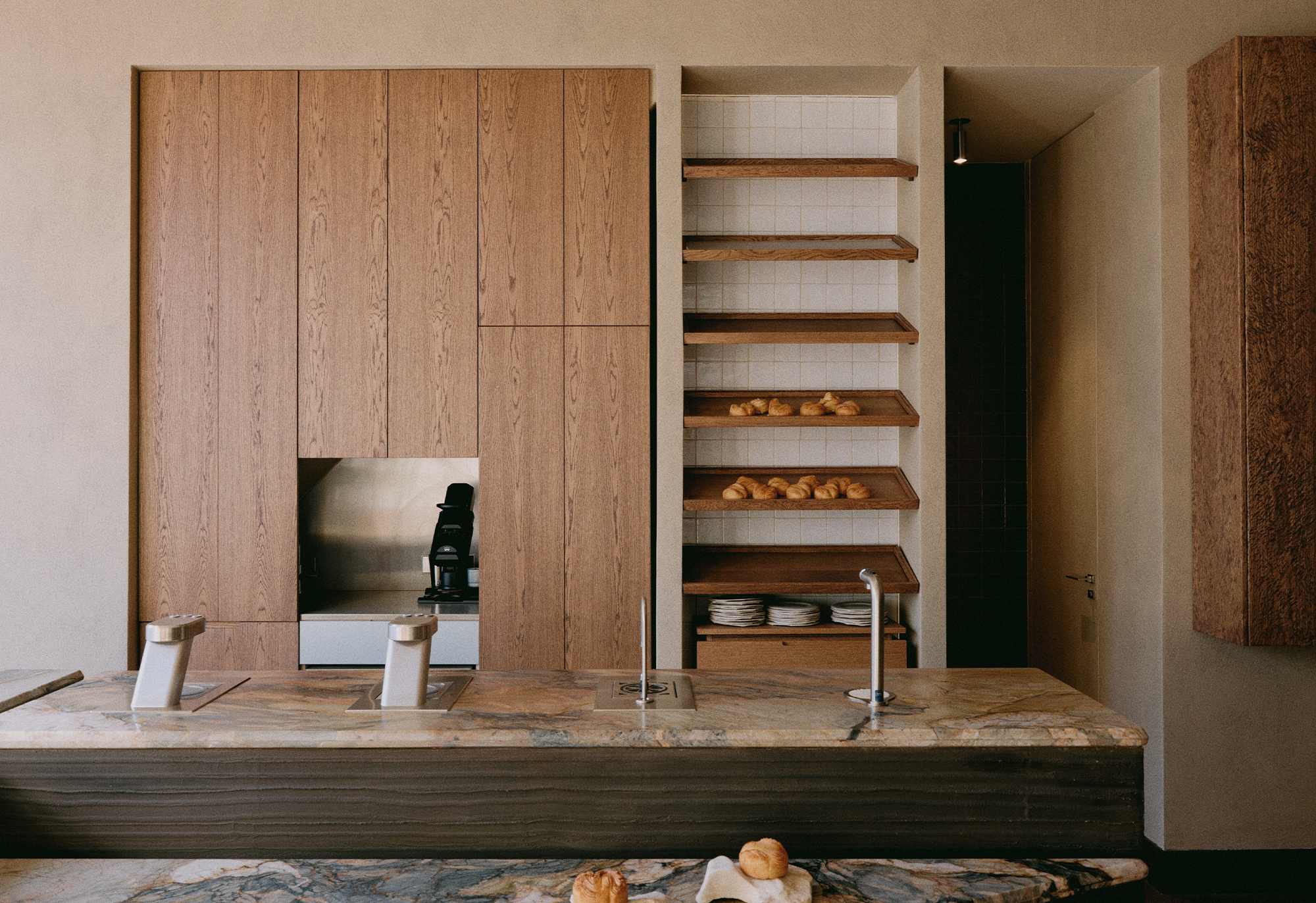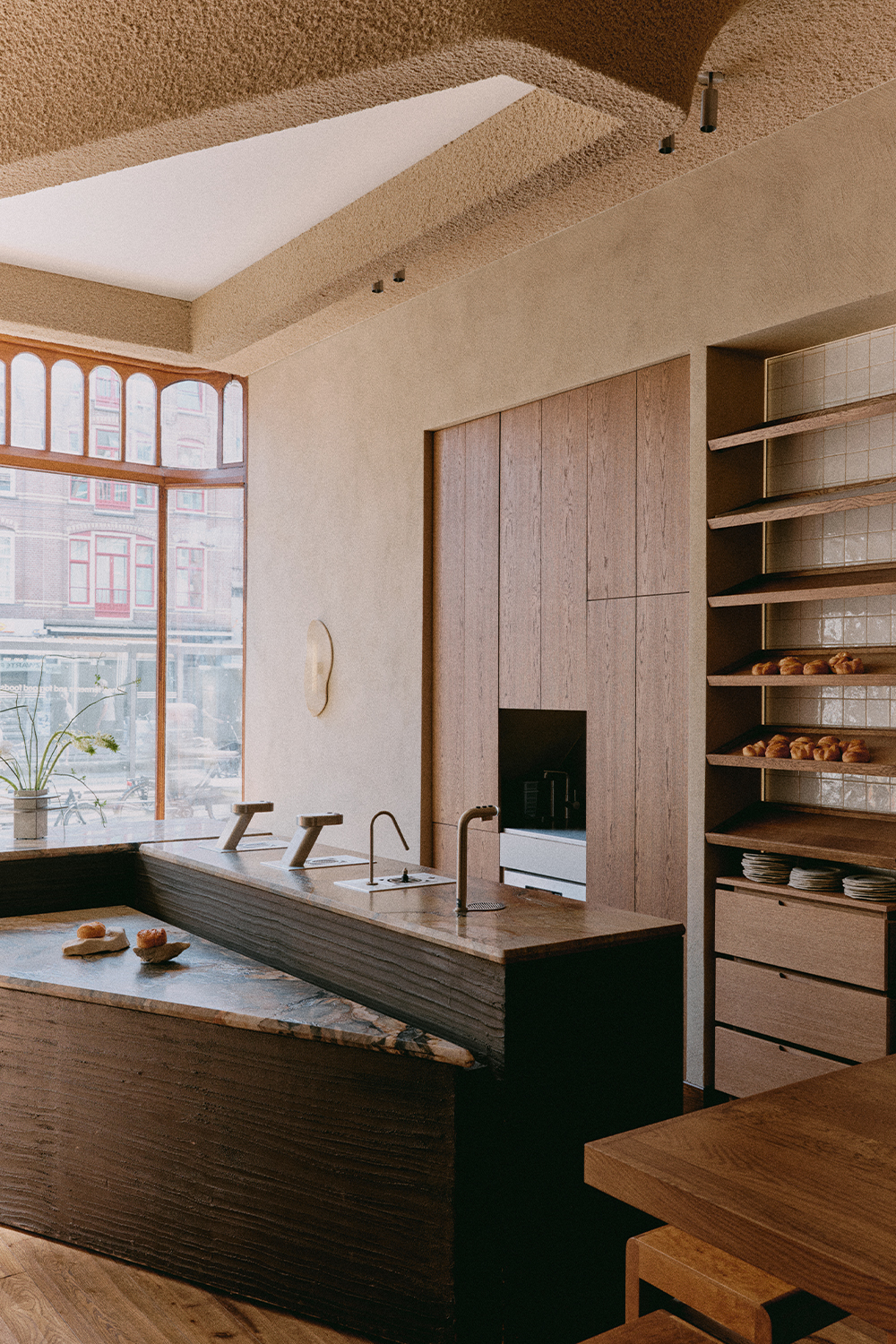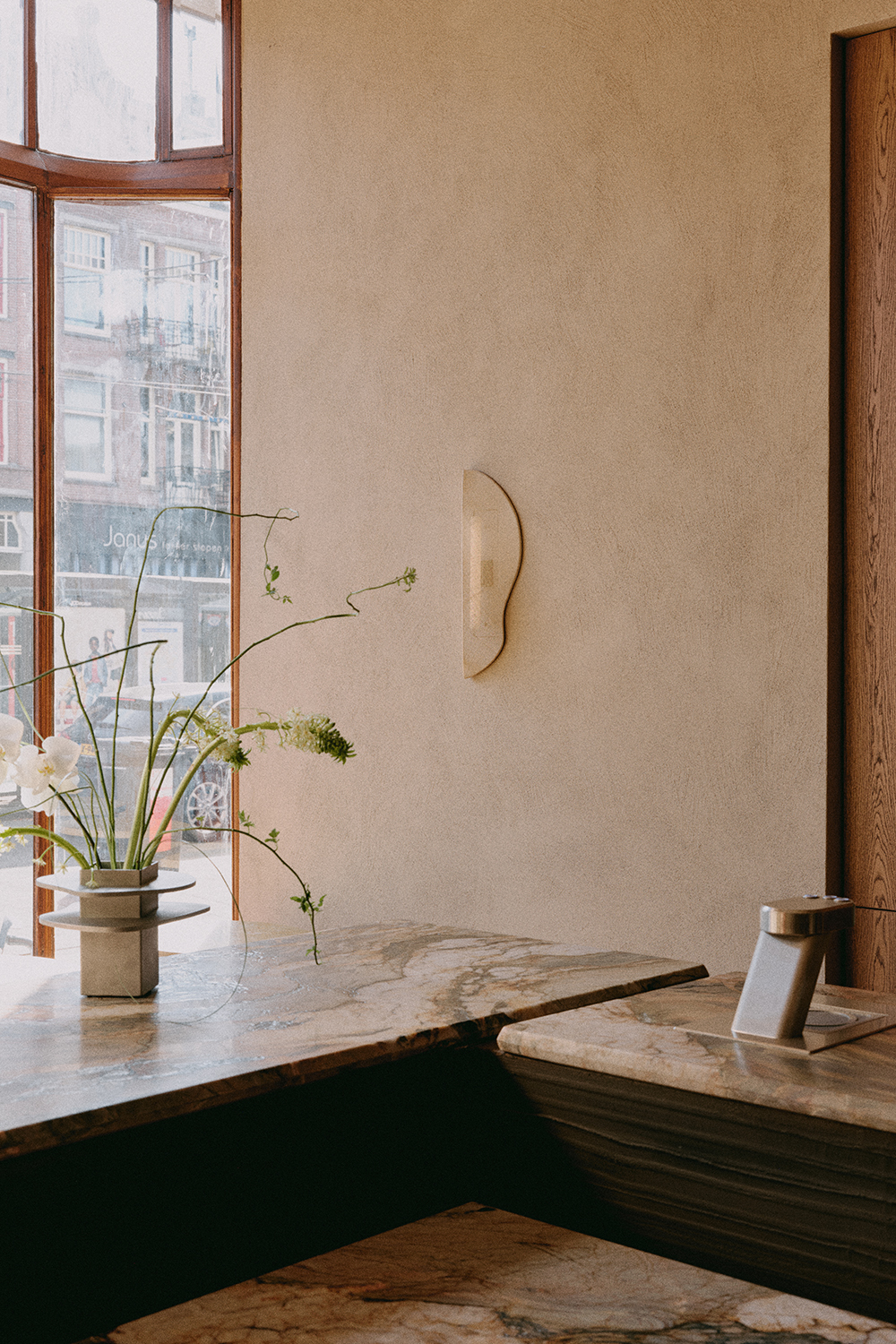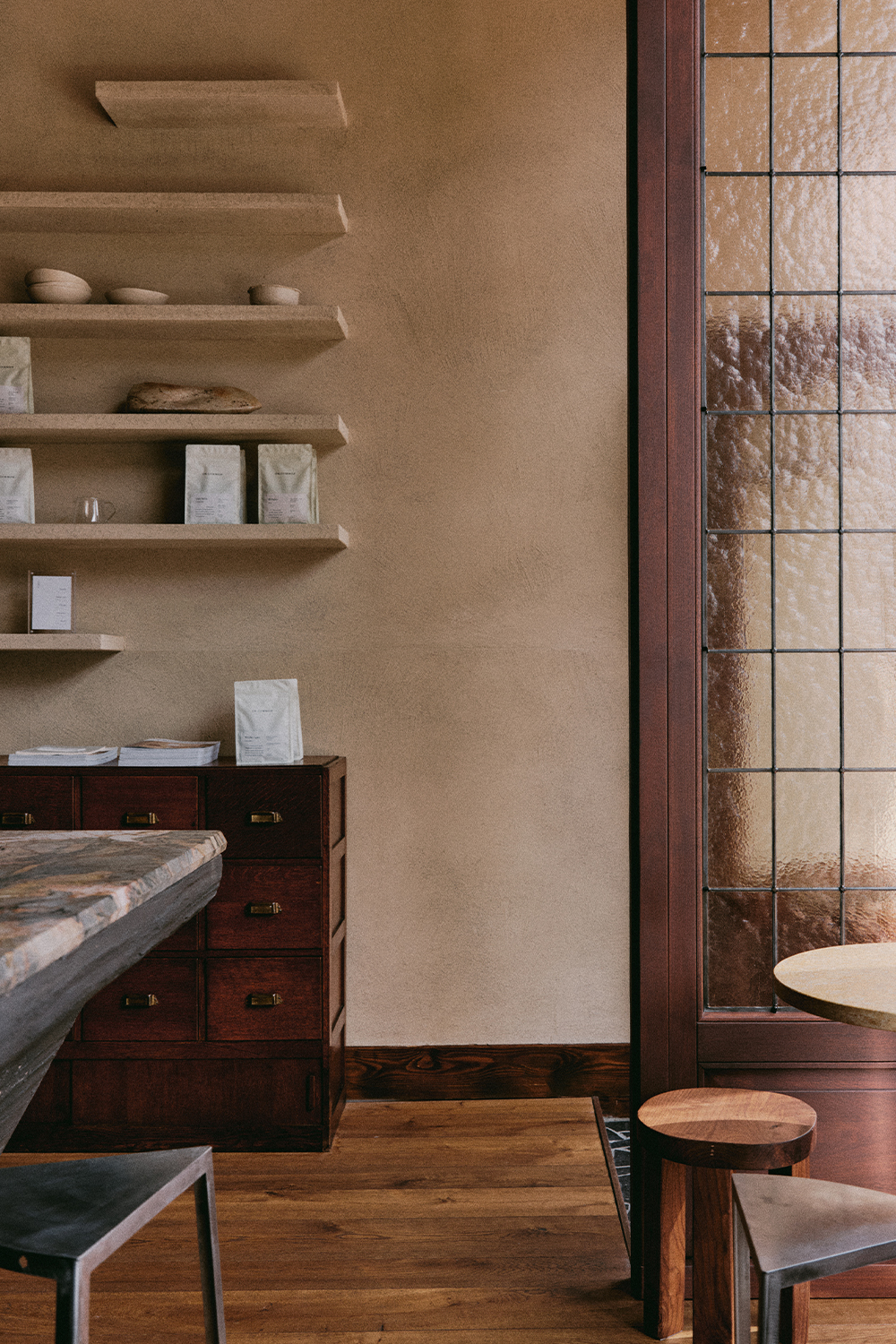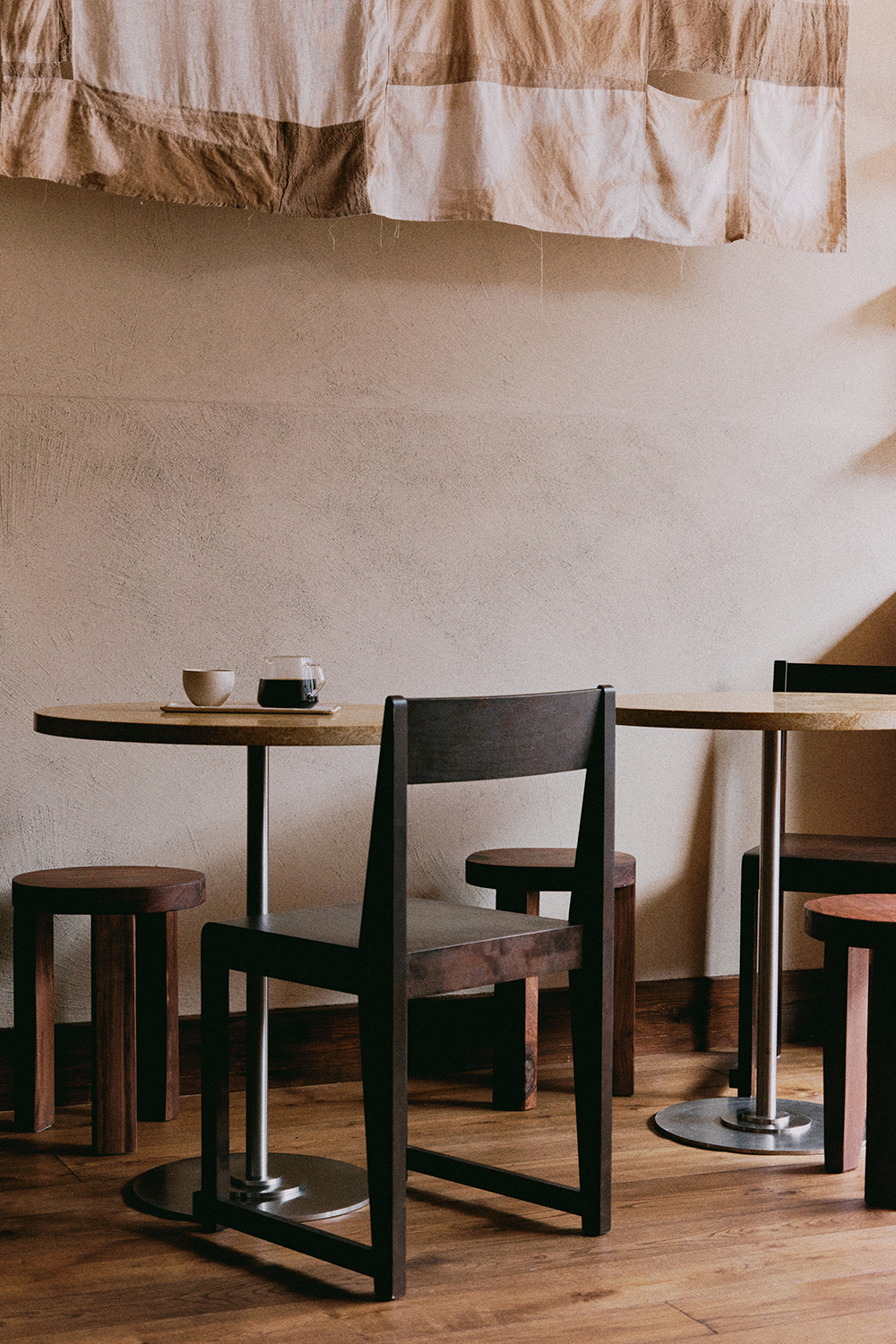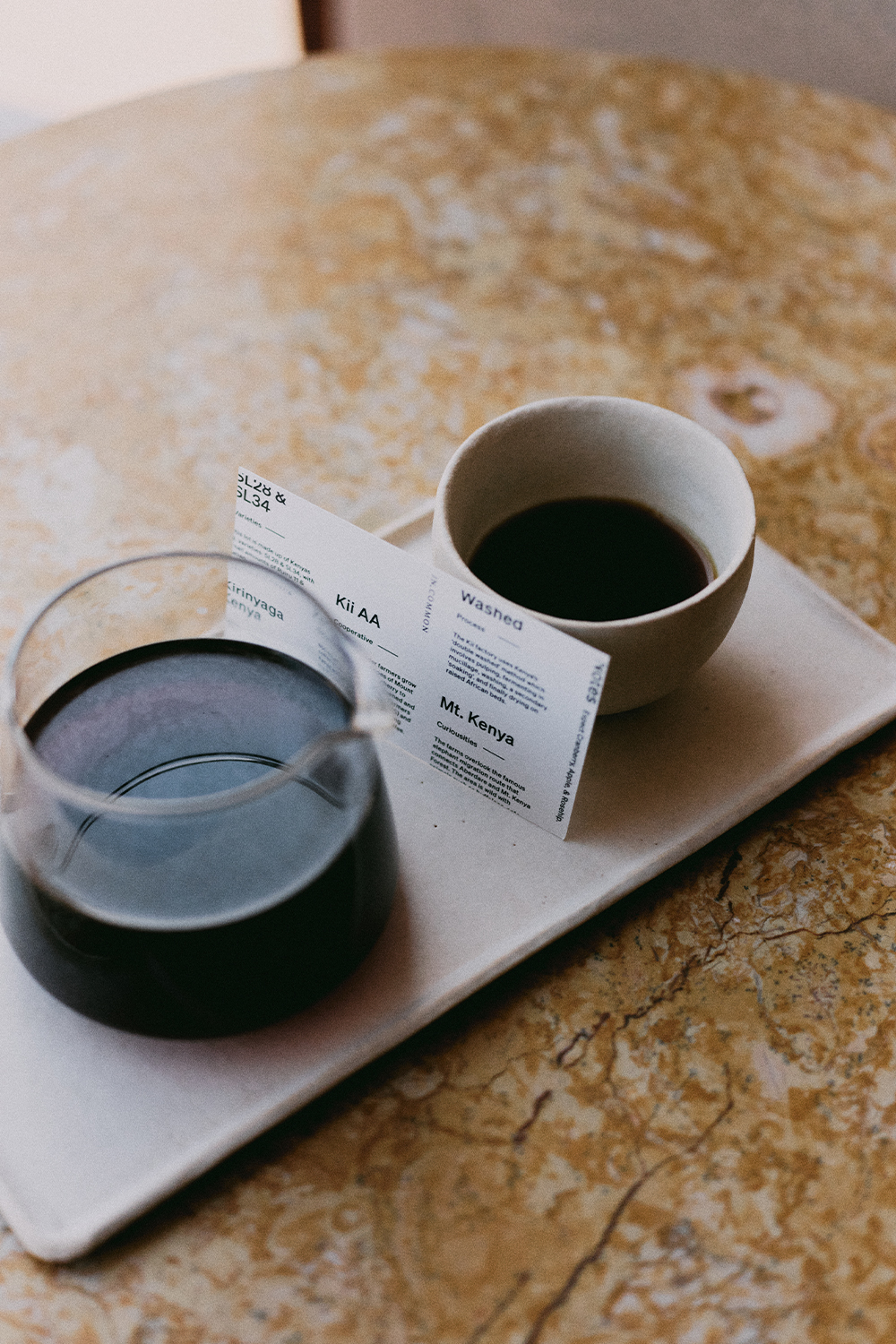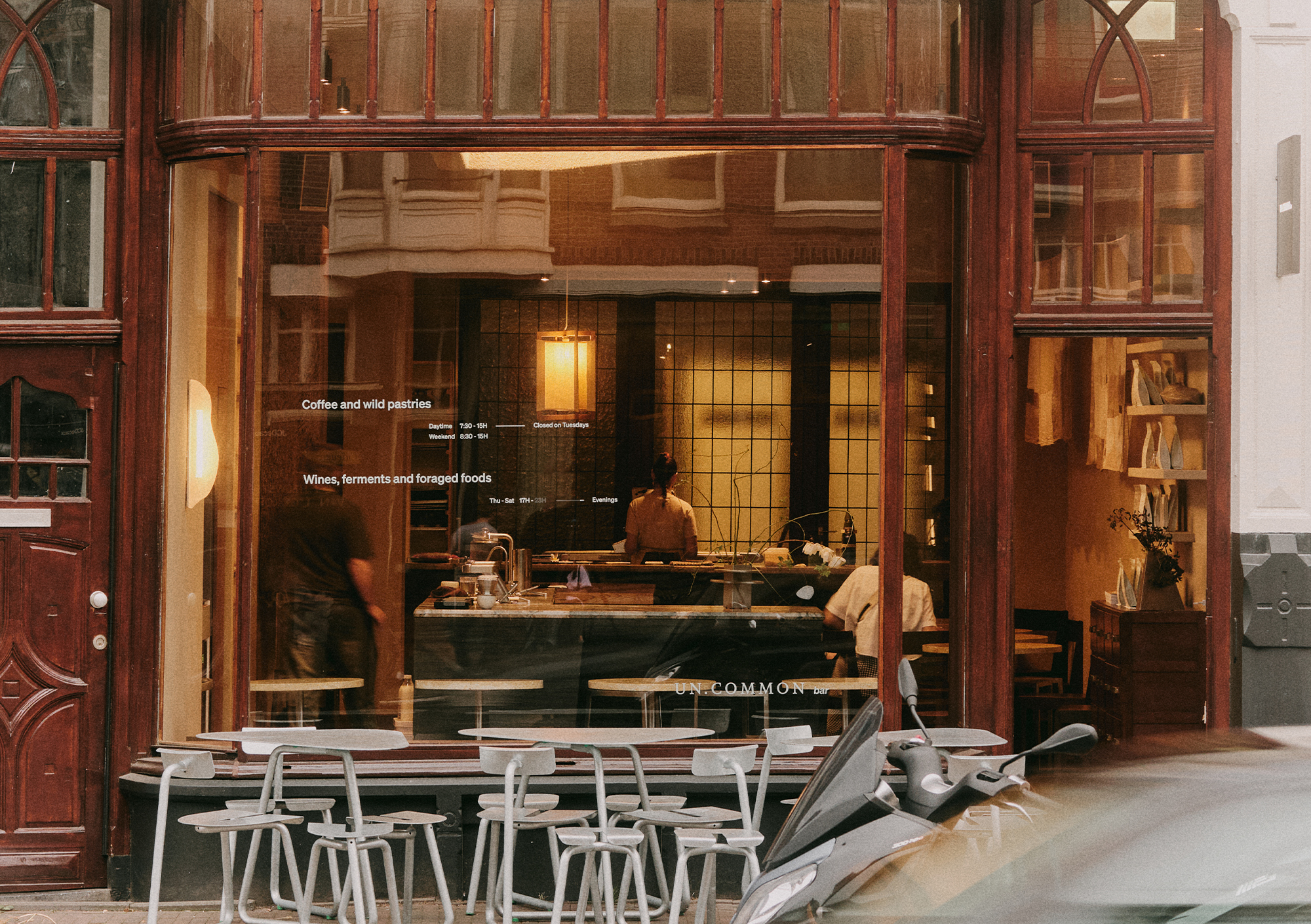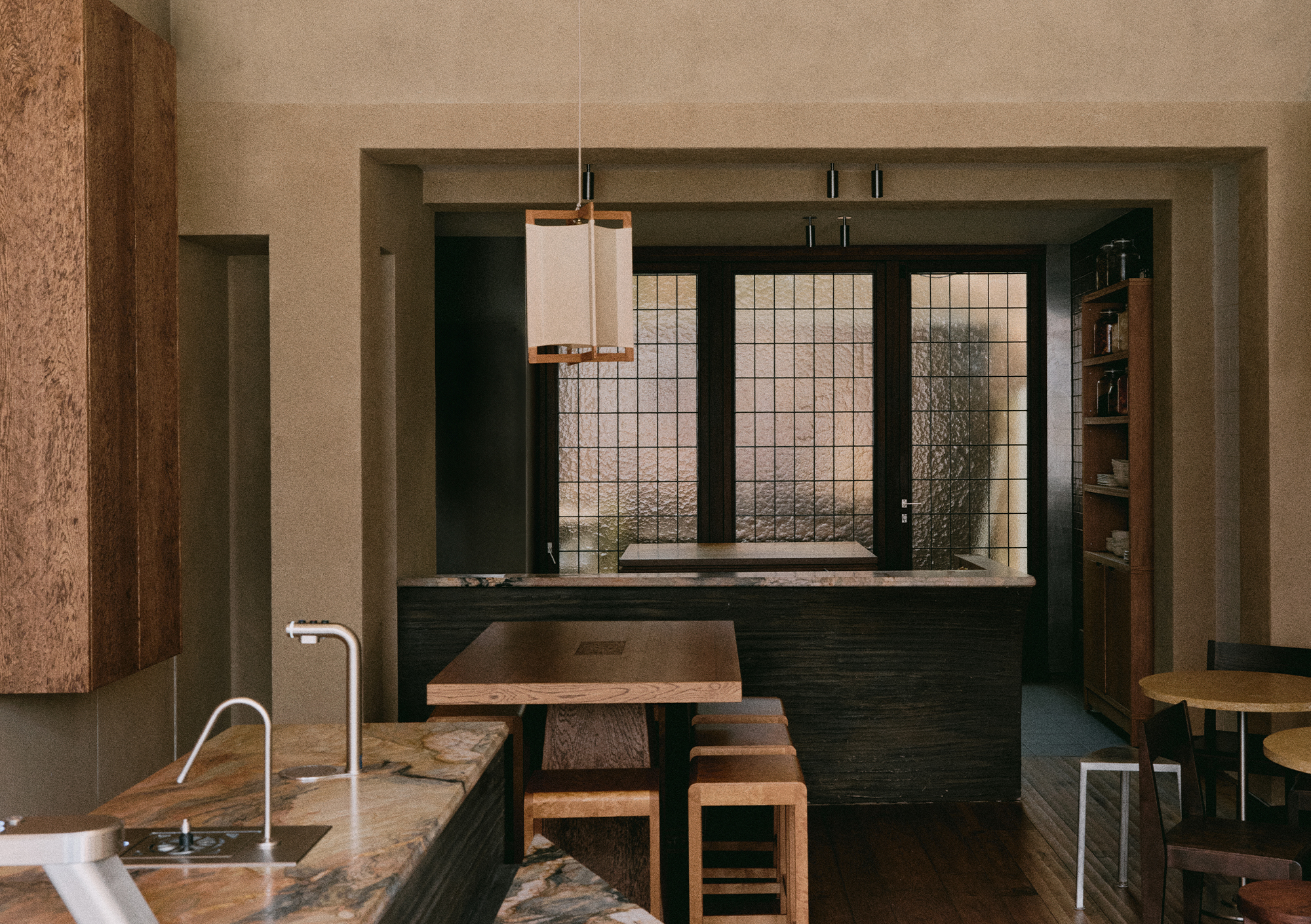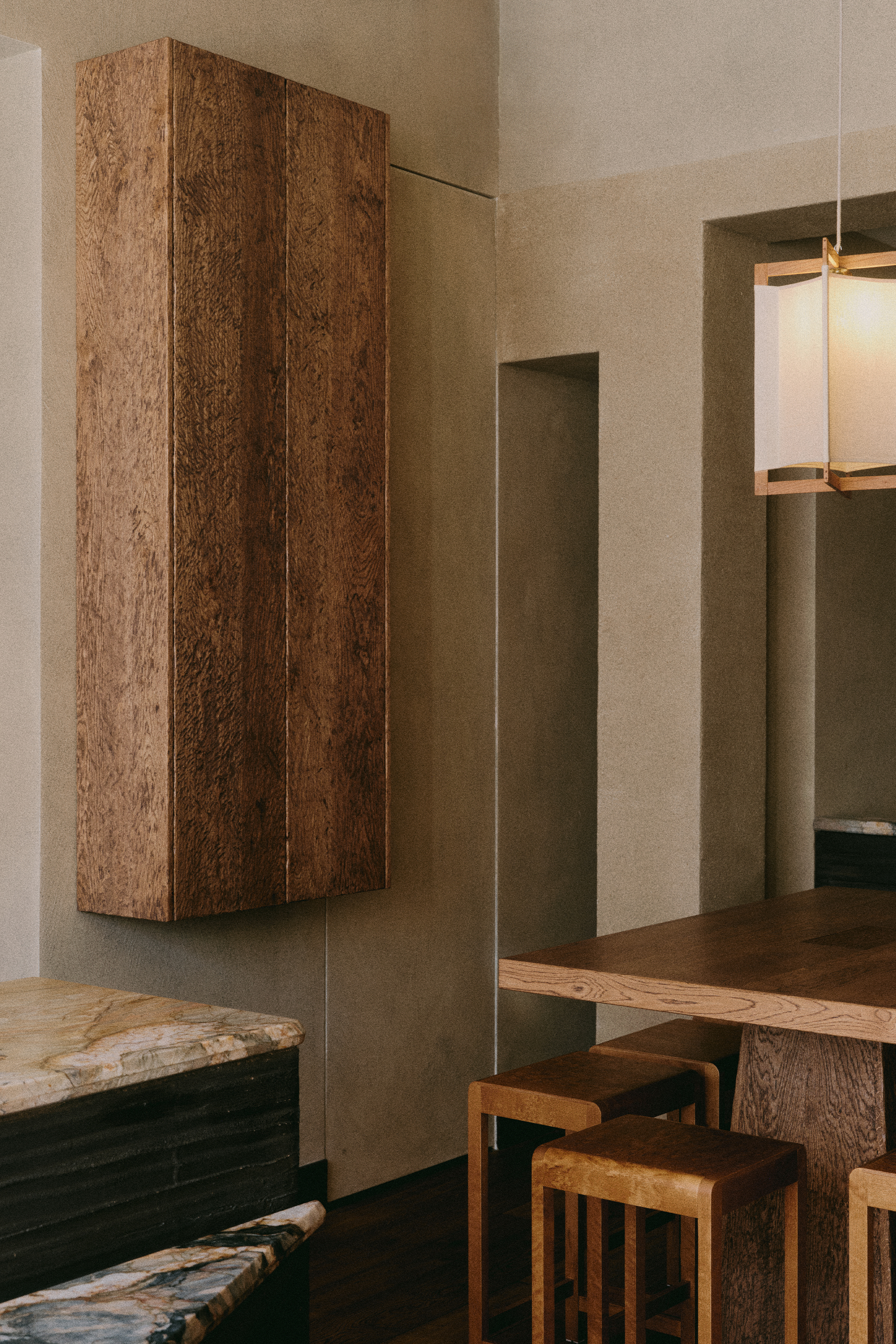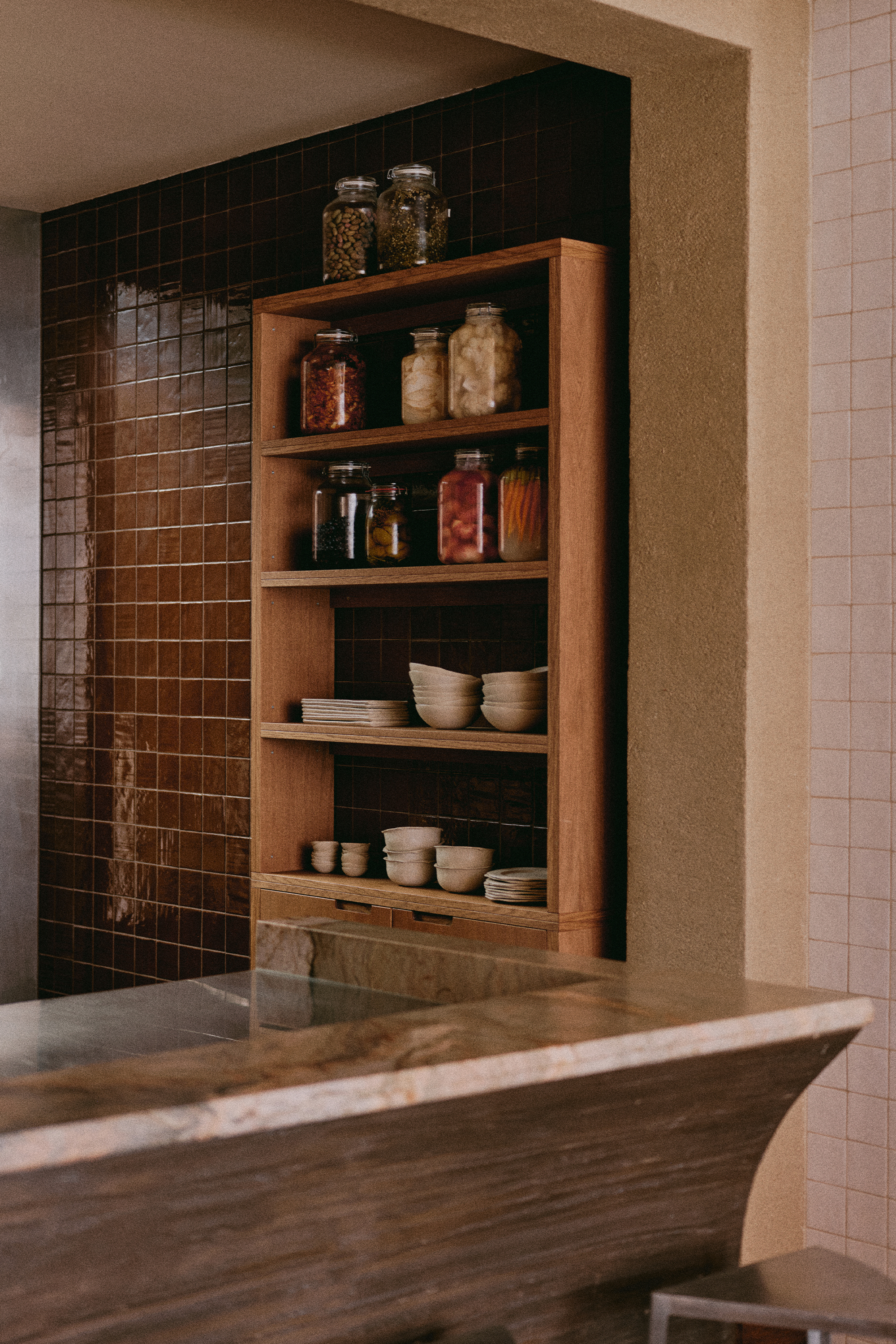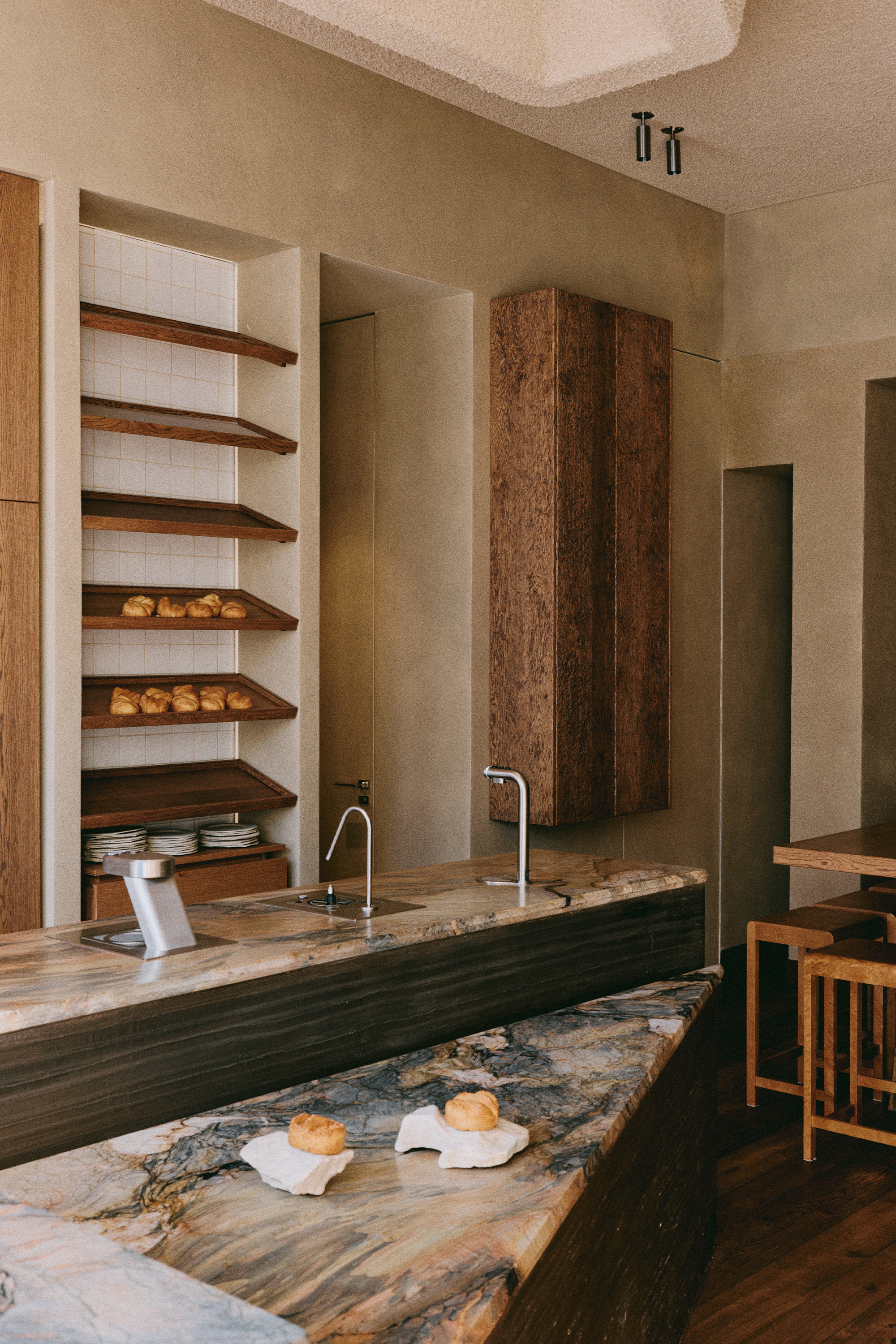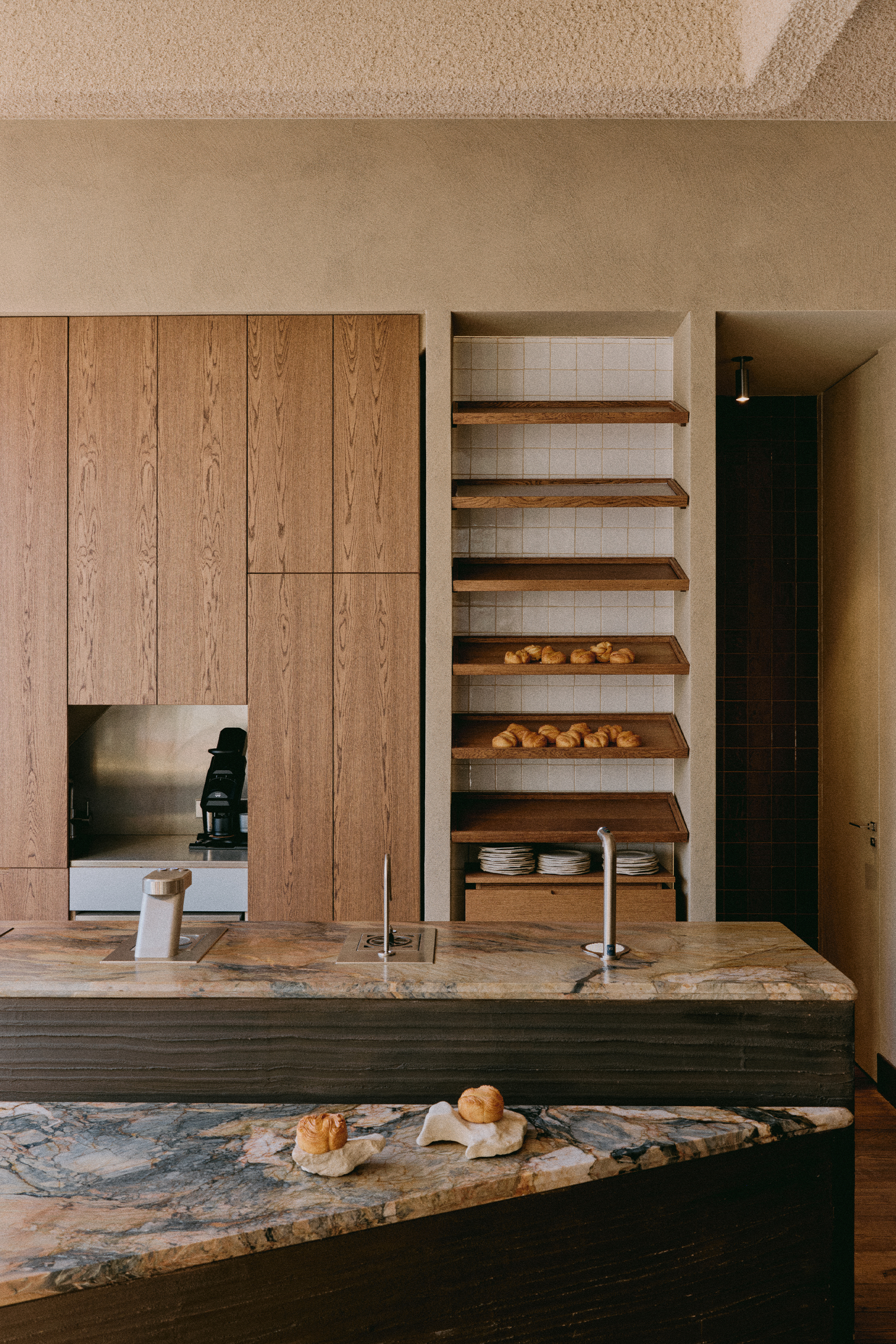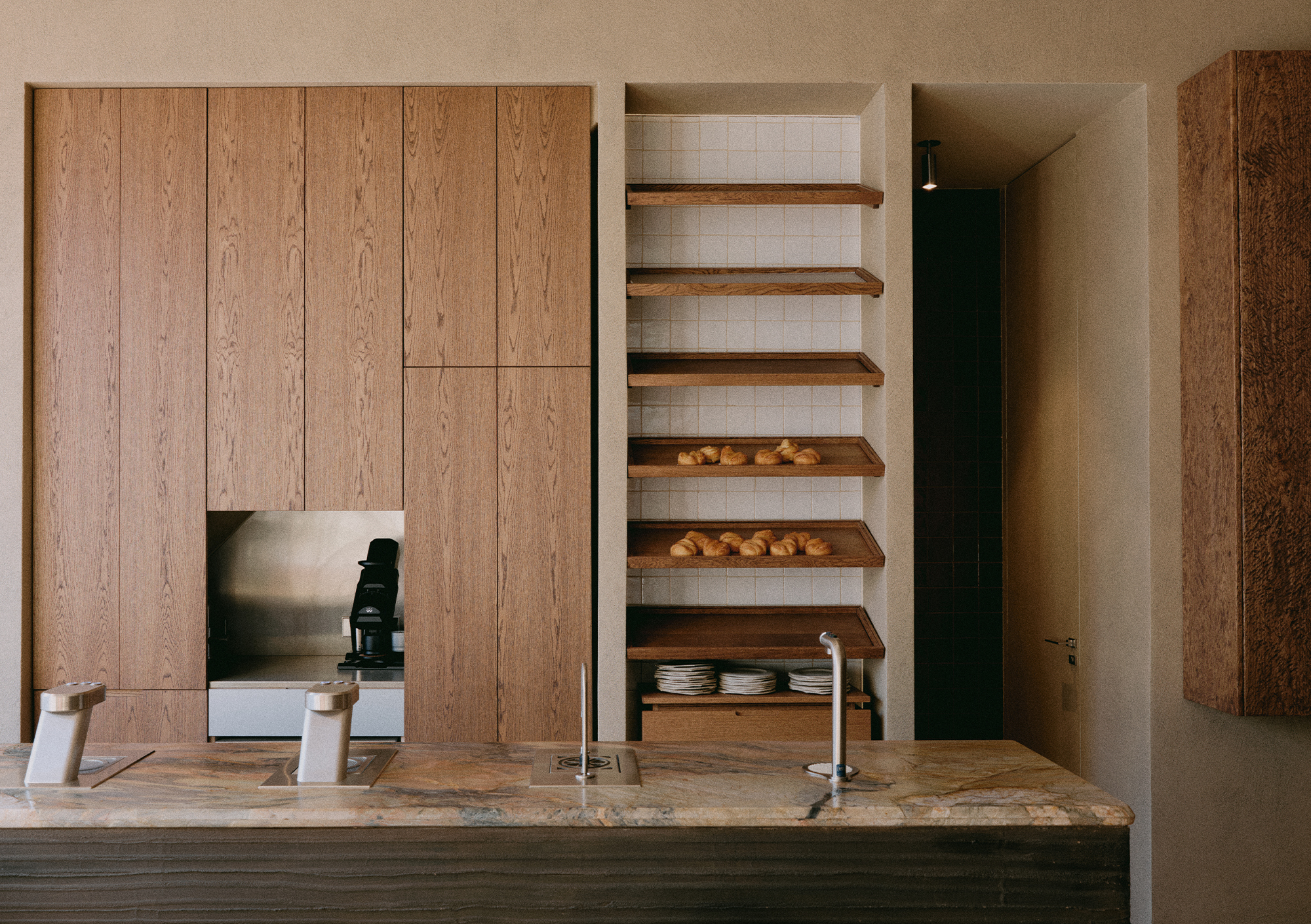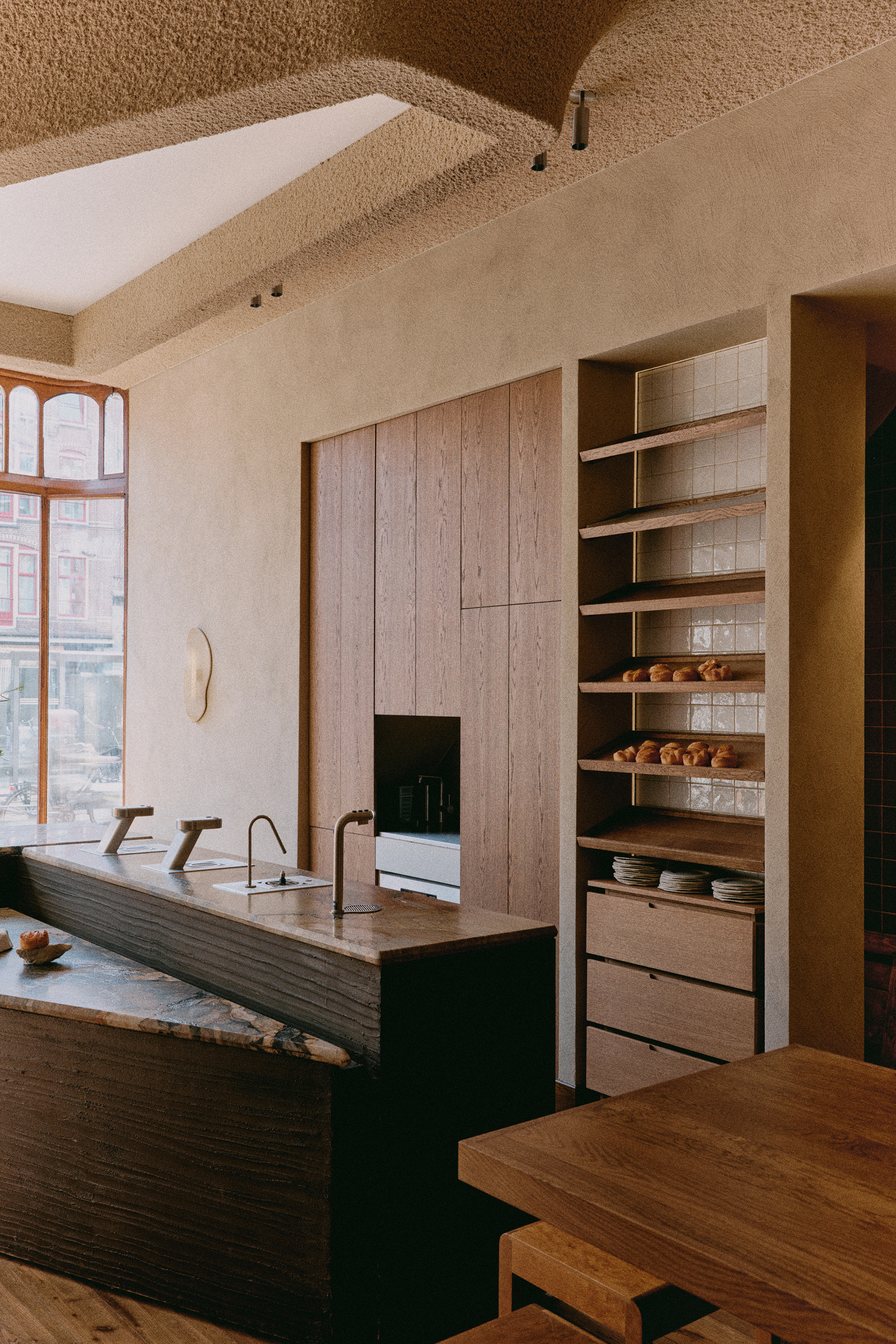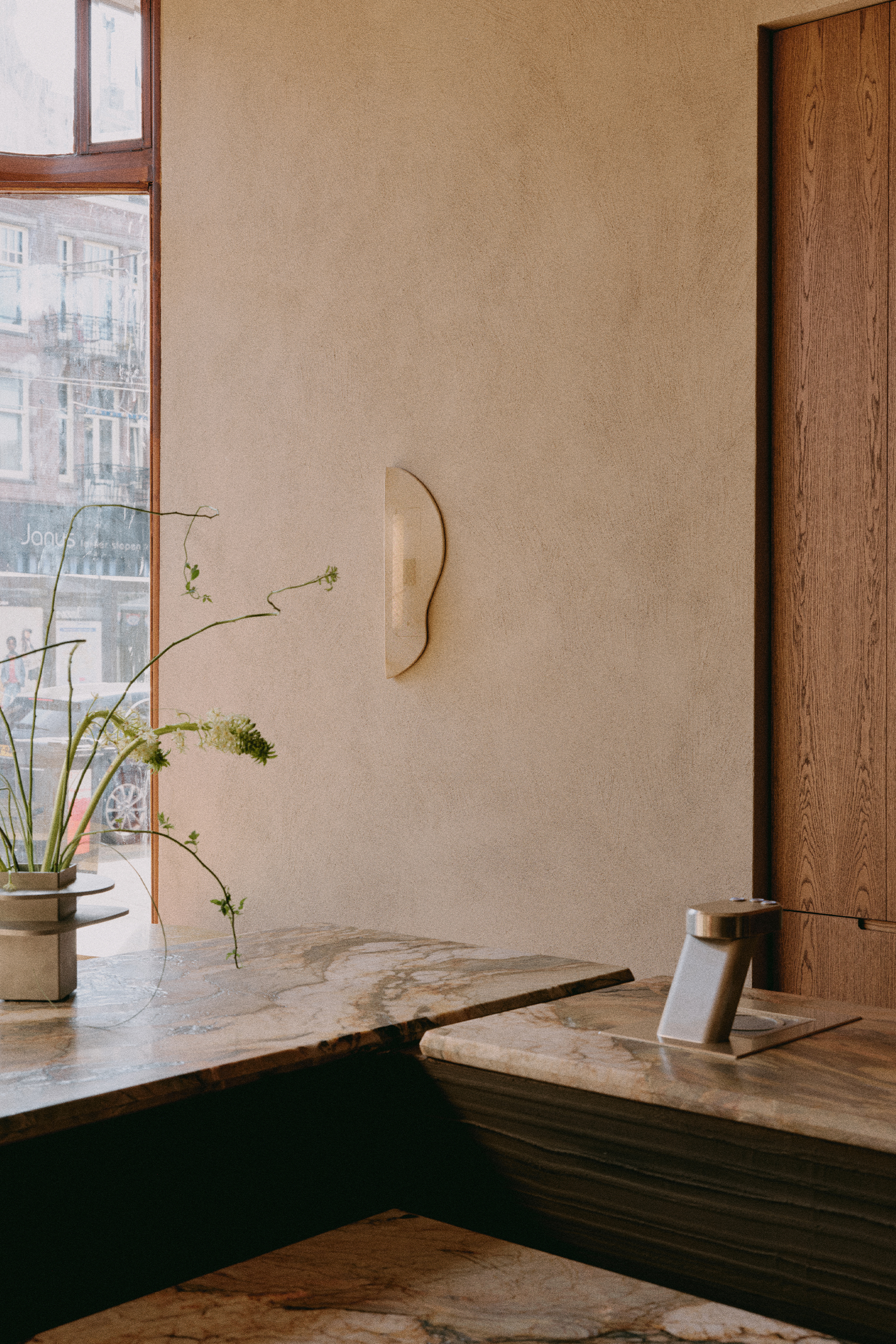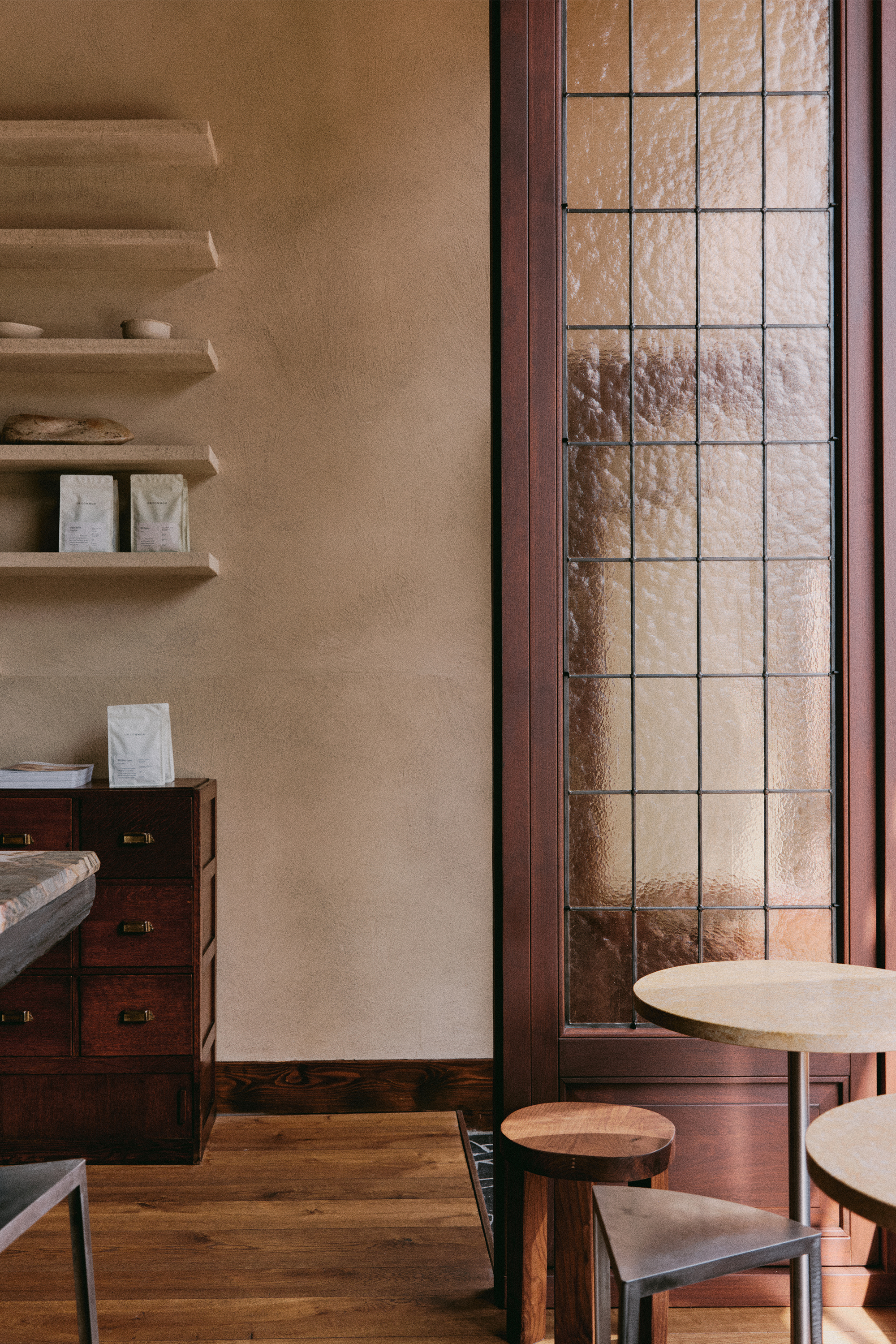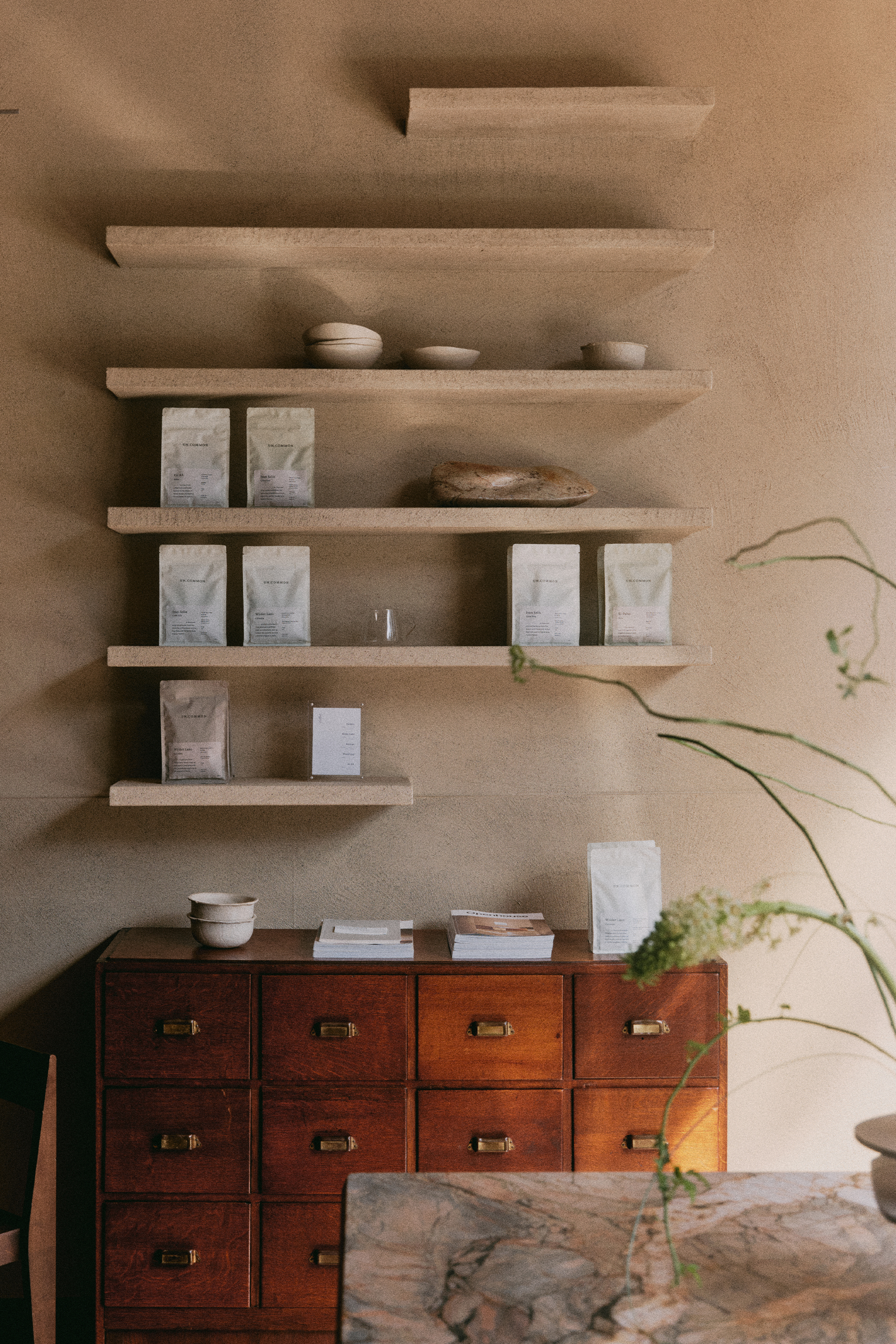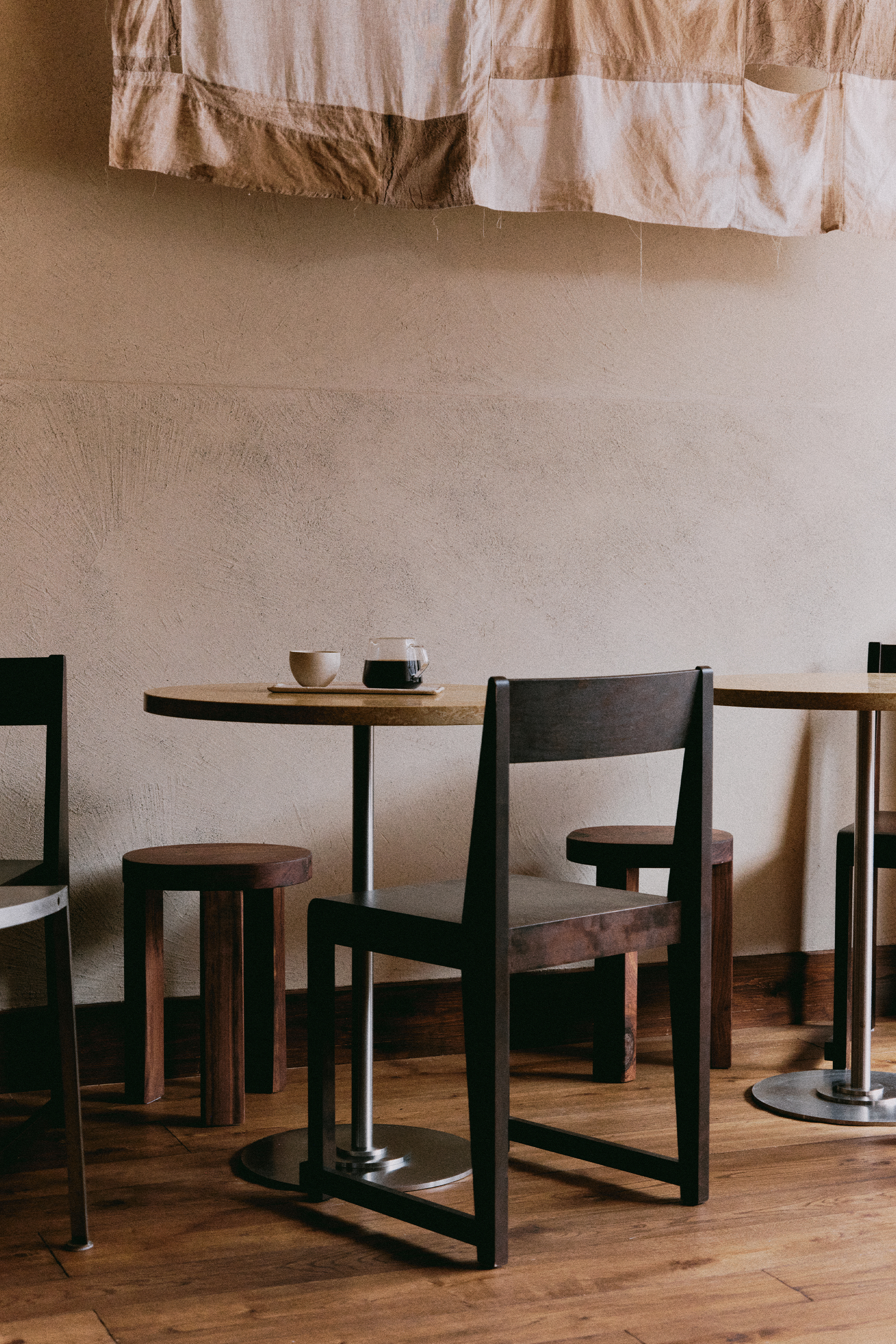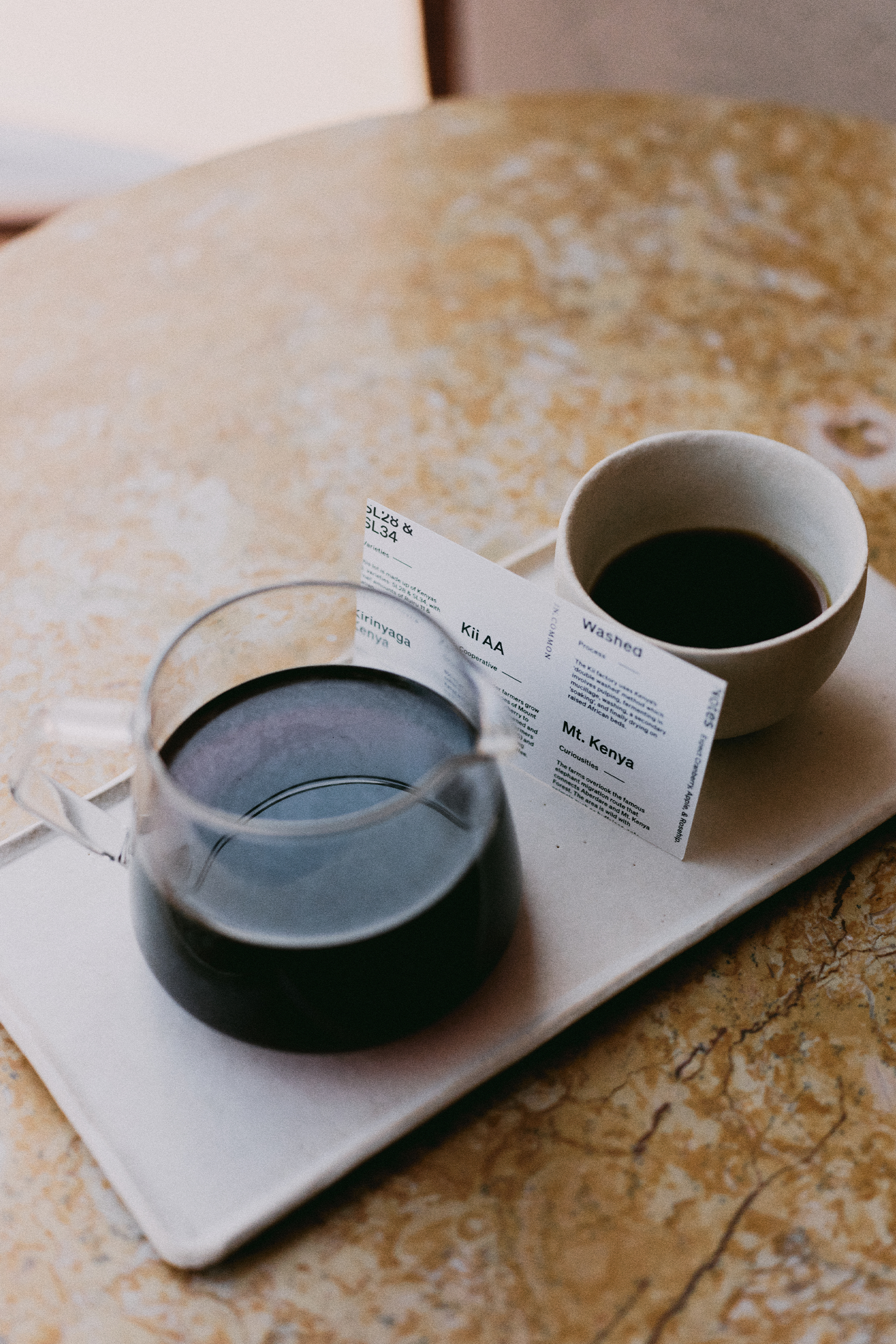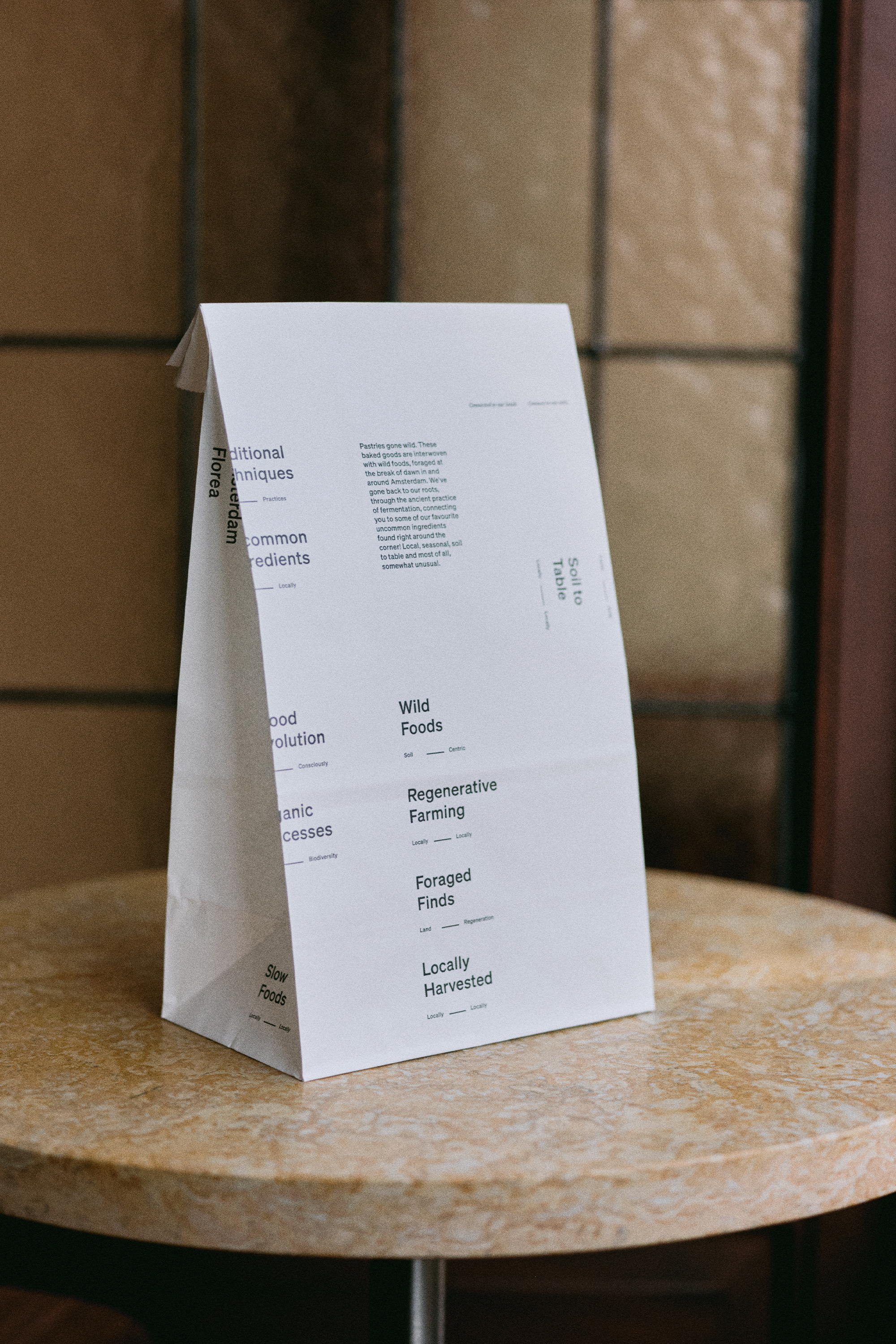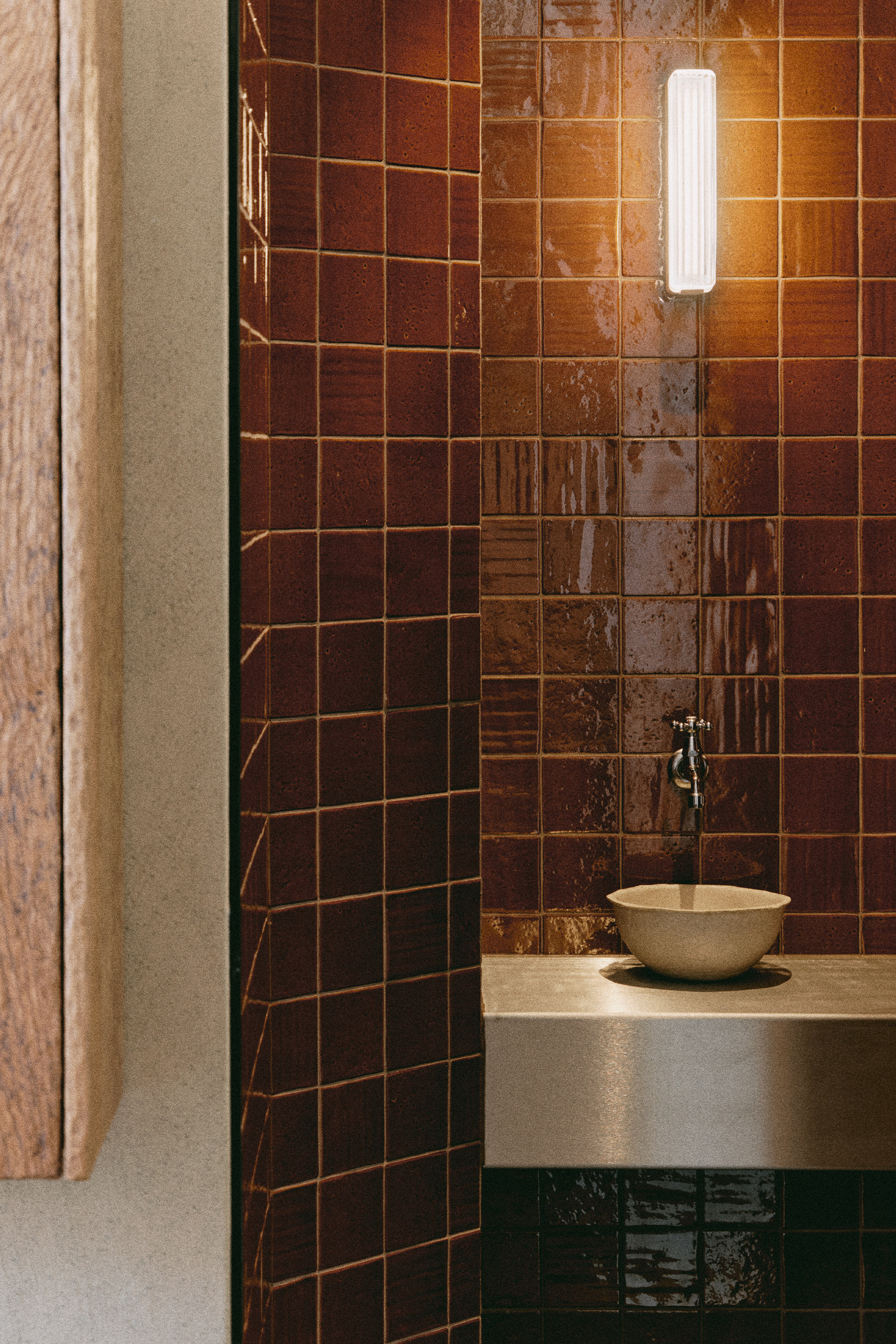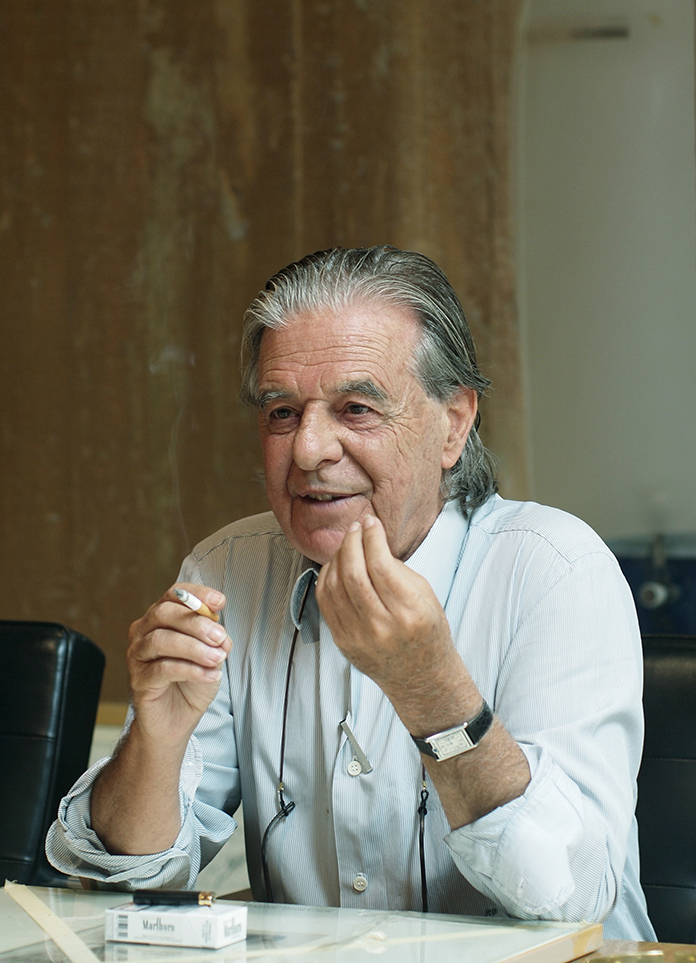Instil Collective, the Amsterdam-based branding and interior design studio, is redefining how we experience spaces by creating environments that nurture wellbeing across multiple layers of our being. Known for their intentional, research-driven approach, the multidisciplinary team believes that a well-designed space is not only aesthetically appealing but also nurtures a deep, sensory connection between people, places, and nature. They believe the intersection of art, nature, science, and spaces can function like a medium for people to come back into balance.
Their latest project, the newly opened Uncommon Bar in Oud- West, embodies this philosophy, offering a sensory experience that goes beyond the typical bar setting. At the heart of this project is the concept of “The Living Network of Roots,” a guiding principle that reflects Uncommon’s close relationships with its coffee producers.
Instil Collective's design approach goes beyond aesthetics. They collaborated with Brazilian neuroarchitect Andréa de Paiva to explore how physical environments impact our minds and bodies. Drawing from neuroarchitecture, the team incorporated fractal patterns - natural, self-repeating shapes that the brain finds inherently soothing. These fractals, often found in trees, clouds, and rivers, have been replicated in the bar's materials and textures, creating a space that feels both calming and natural.
